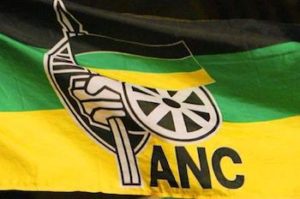
On this date in 1912, The African National Congress was founded in South Africa with the aid of W.E.B. DuBois.
It began as a nonviolent civil rights organization that worked to promote the interests of Black Africans. With a primarily middle-class constituency, the ANC stressed constitutional means of change through delegations, petitions, and peaceful protest. In 1940, Alfred B. Xuma became ANC president and began recruiting younger, more outspoken members. Among the recruits were Nelson Mandela, Oliver Tambo, and Walter Sisulu, who helped found the ANC’s Youth League in 1944 and soon became the organization's leading member.
ANC membership significantly increased in the 1950s after South Africa's white-minority government began to implement apartheid, a policy of rigid racial segregation, in 1948. The ANC actively opposed apartheid and increased its political combat with the government. In 1955, the ANC issued its Freedom Charter, which stated, “South Africa belongs to all who live in it, black and white.” In 1961, the ANC formed a military wing called Umkhonto we Sizwe (“Spear of the Nation”), which began a campaign of sabotage against the government. During the unrest of the next several years, Mandela and Sisulu were sentenced to life in prison for their ANC activities. Tambo left South Africa to establish an external wing of the ANC.
For the next 30 years, the ANC operated as an underground organization. Its principal, a revolt in Soweto, a Black community outside Johannesburg, led to a reawakening of Black African politics and a renewed assault on apartheid. ANC membership continued to grow throughout this time. 1990, the government lifted its ban on the ANC and other Black African organizations.
That same year, Mandela was released from more than 27 years in prison and emerged as the recognized leader of the ANC. No longer forced to work underground, the ANC became a political party seeking power through the ballot. In February 1993, the ANC and the government agreed to a plan to form a transitional government to rule for five years after the country's first all-race elections scheduled for April 1994. In the months before the election, violence erupted between the ANC and supporters of the Inkatha Freedom Party, the Zulu nationalist movement.
On April 30, 1994, millions of South Africans of all races participated in the country's first democratic elections. On May 2, after the ANC's victory, President F.W. de Klerk conceded the presidency to Mandela, who led the country’s first multiracial government.
In late 1997, the aging Mandela, who had announced that he would not seek another term as president, formally stepped down as head of the ANC. The party's convention chose ANC veteran leader Thabo Mbeki as the new party president. In the June 1999 elections, the ANC won close to two-thirds of the seats in the legislature and selected Mbeki as South Africa's second black president.
The Encyclopedia of African American Heritage
by Susan Altman Copyright 1997, Facts on File, Inc. New York
ISBN 0-8160-3289-0